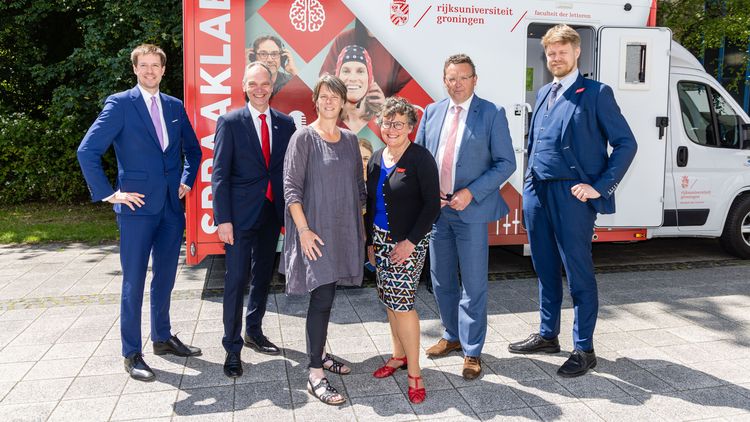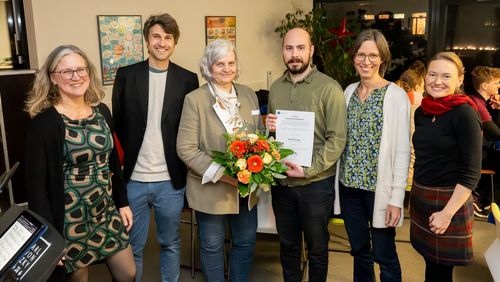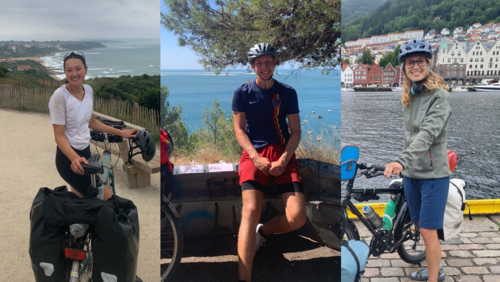The universities of Groningen and Oldenburg have been cooperating for more than 40 years. On Thursday, representatives of both universities met for a strategic exchange. Among them: the "Mobile Speech Lab" of the Groningen University.
The universities of Groningen and Oldenburg have been collaborating for more than 40 years. The range of cooperation is wide – it extends from teacher training to research on cross-border health care and knowledge transfer to language and everyday history in the border region. "Our cooperation in research, teaching and transfer aims to overcome borders in the future as well," said University President Prof. Dr Ralph Bruder on the occasion of today's strategic meeting of both university administrations in Oldenburg. Whether culture, coastal protection or demographic change – the regions are closely linked and face similar social challenges, he said. "As universities, we want to make a joint contribution to meeting these challenges."
"We are grateful that the Lower Saxony Ministry of Science values our partnership with the University of Oldenburg and helps to expand the joint regional transfer of knowledge and thus strengthen our economic and social impact," said Prof. Dr Jouke de Vries, President of the Rijksuniversiteit Groningen. He is convinced that local cooperation will further promote regional development and create added value for all involved.
In addition to the established joint training of medical students in Oldenburg and Groningen, the cooperation partners have further expanded their collaboration in studies and teaching over the past two years. For example, 17 students of the Oldenburg Master's programme "Water and Coastal Management" are currently completing part of their studies in Groningen and receive a degree from both universities. In future, lecturers from the Helmholtz Institute for Functional Marine Biodiversity based at the University of Oldenburg will also be involved in the training.
As part of the Lehramt.International programme funded by the German Academic Exchange Service (DAAD), in which the South African Nelson Mandela University is also involved, joint digital workshops or so-called Lesson Studies have taken place on topics such as inclusion, multilingualism and diversity. The partners are now working towards a joint certificate programme and expanding the activities for future primary school teachers.
In research, the universities cooperate intensively on medical topics and health care issues, with a focus on healthy ageing, among other things. In future, doctoral students will be able to complete their research with a so-called "double degree". Under the umbrella of the joint "Cross-Border Institute of Healthcare Systems and Prevention", researchers are also working together on several projects, for example on topics such as antibiotic resistance or the shortage of skilled workers in nursing.
In linguistics, history and cultural studies, there are currently also several joint projects in research and teaching. The "Border Crossers" project, for example, deals with the history of language and everyday life in the border region from an interdisciplinary perspective. Here, too, doctoral students obtain degrees from both universities. University lecturers from musicology at both universities also cooperate on topics such as pop culture and democracy and introduce students to the creative industries in the region in a practical way.
The delegation from Groningen came with the so-called Mobile Speech Lab. With this language lab on four wheels, Groningen researchers under the direction of linguist Prof. Dr Martijn Wieling conduct linguistic research, for example on regional dialects or language disorders. In the course of the visit, Wieling and Oldenburg linguist Prof. Dr Jörg Peters conducted a workshop with doctoral students and explored the possibilities for future cooperation.




